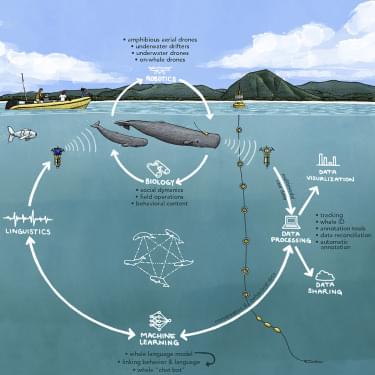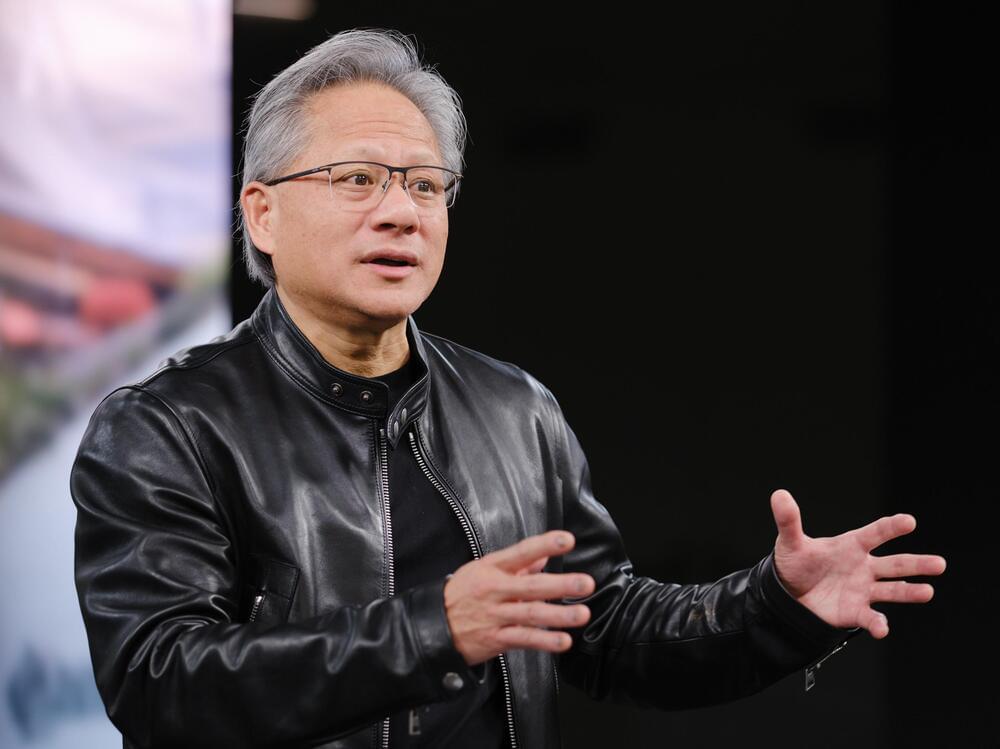NCBI Literature Resources.
MeSH PMC Bookshelf Disclaimer.
The PubMed wordmark and PubMed logo are registered trademarks of the U.S. Department of Health and Human Services (HHS). Unauthorized use of these marks is strictly prohibited.


Enzyme-catalyzed replication of nucleic acid sequences is a prerequisite for the survival and evolution of biological entities. Before the advent of protein synthesis, genetic information was most likely stored in and replicated by RNA. However, experimental systems for sustained RNA-dependent RNA-replication are difficult to realise, in part due to the high thermodynamic stability of duplex products and the low chemical stability of catalytic RNAs. Using a derivative of a group I intron as a model for an RNA replicase, we show that heated air-water interfaces that are exposed to a plausible CO2-rich atmosphere enable sense and antisense RNA replication as well as template-dependent synthesis and catalysis of a functional ribozyme in a one-pot reaction. Both reactions are driven by autonomous oscillations in salt concentrations and pH, resulting from precipitation of acidified dew droplets, which transiently destabilise RNA duplexes. Our results suggest that an abundant Hadean microenvironment may have promoted both replication and synthesis of functional RNAs.
© 2023. The Author(s).
Conflict of interest statement.

The recent success of machine learning (ML) methods in answering similar questions in human languages (Natural Language Processing or NLP) is related to the availability of large-scale datasets. The effort of creating a biological dataset in a format, level of detail, scale, and time span amenable to ML-based analysis is capital intensive and necessitates a multidisciplinary expertise to develop, deploy, and maintain specialized hardware to collect acoustic and behavioral signals, as well as software to process and analyze them, develop linguistic models that reveal the structure of animal communication and ground it in behavior, and finally perform playback experiments to attempt bidirectional communication for validation ( Figure 1 ). Yet, the deployment of graphics processing unit’s (GPU) is following a trajectory akin to Moore’s Law ( https://openai.com/blog/ai-and-compute) and, at the same time, the success of such an endeavor could potentially yield cross-applications and advancements in broader communities investigating non-human communication and animal behavioral research. One of the main drivers of progress making deep learning successful has been the availability of large (both labeled and unlabeled) datasets (and of architectures capable of taking advantage of such large data). To build a more complete picture and capture the full range of a species’ behavior, collecting datasets containing measurements across a broad set of factors is essential. In turn, setting up infrastructure that allows for the collection of broad and sizable datasets would facilitate studies that allow the autonomous discovery of the meaning-carrying units of communication.
A dedicated interdisciplinary initiative toward a detailed understanding of animal communication could arguably be made with a number of species as its focus. Birds, primates, and marine mammals have all given insight into the capacity of animal communication. In some ways, the collective understanding of the capacity for and faculty of communication in non-humans has been built through experimentation and observation across a wide number of taxa ( Fitch, 2005 ; Hauser et al., 2002). The findings on both the underlying neurobiological systems underpinning communicative capacity, and the complexity and diversity of the communication system itself often mirror our ability with which to work with a given species, or the existence of prominent long-term field research programs.
Animal communication researchers have conducted extensive studies of various species, including spiders (e.g. Elias et al., 2012 ; Hebets et al., 2013), pollinators (e.g Kulahci et al., 2008), rodents (e.g Ackers and Slobodchikoff, 1999 ; Slobodchikoff et al., 2009), birds (e.g Baker, 2001 ; Griesser et al., 2018), primates (e.g. Clarke et al., 2006 ; Jones and Van Cantfort, 2007 ; Leavens, 2007 ; Ouattara et al., 2009 ; Schlenker et al., 2016 ; Seyfarth et al., 1980), and cetaceans (e.g Janik, 2014 ; Janik and Sayigh, 2013), showing that animal communication involves diverse strategies, functions, and hierarchical components, and encompasses multiple modalities. Previous research efforts often focused on the mechanistic, computational, and structural aspects of animal communication systems. In human care, there have been several successful attempts of establishing a dialogue with birds (e.g.

More biologists are returning to the use of design-based assumptions, tools, models, and language to study the natural world. Dr. Brian Miller explains why in Part 1 of a conversation with Casey Luskin.
Why do AI ethics conferences fail? They fail because they don’t have a metatheory to explain how it is possible for ethical disagreements to emerge from phenomenologically different worlds, how those are revealed to us, and how shifts between them have shaped the development of Western civilization for the last several thousand years from the Greeks and Romans, through the Renaissance and Enlightenment.
So perhaps we’ve given up on the ethics hand-wringing a bit too early. Or more precisely, a third nonzero sum approach that combines ethics and reciprocal accountability is available that actually does explain this. But first, let’s consider the flaw in simple reciprocal accountability. Yes, right now we can use chatGPT to catch Chat-GPT cheats, and provide many other balancing feedbacks. But as has been noted above with reference to the colonization of Indigenous nations, once the technological/ developmental gap is sufficiently large those dynamics which operate largely under our control and in our favor can quickly change, and the former allies become the new masters.
Forrest Landry capably identified that problem during a recent conversation with Jim Rutt. The implication that one might draw is that, though we may not like it, there is in fact a role to play by axiology (or more precisely, a phenomenologically informed understanding of axiology). Zak Stein identifies some of that in his article “Technology is Not Values Neutral”. Lastly, Iain McGilchrist brings both of these topics, that of power and value, together using his metatheory of attention, which uses that same notion of reciprocal accountability (only here it is called opponent processing). And yes, there is historical precedent here too; we can point to biological analogues. This is all instantiated in the neurology of the brain, and it goes back at least as far as Nematostella vectensis, a sea anemone that lived 700 million years ago! So the opponent processing of two very different ways of attending to the world has worked for a very long time, by opposing two very different phenomenological worlds (and their associated ethical frameworks) to counterbalance each other.
A new robot just 10 microns across is able to navigate in a physiological environment and perform a variety of tasks, both autonomously or through external control by a human operator.
Researchers from Tel Aviv University (TAU) have developed a new “hybrid micro-robot” the size of a single biological cell. This can be controlled and moved using two different mechanisms – electric and magnetic.
Researchers from Tel Aviv University, Israel, have created a micro-robot the size of a single biological cell that navigates using both electricity and magnetic fields and can identify and capture a single cell, opening the door to a vast array of applications.
Inspired by biological “swimmers” such as bacteria and sperm, the researchers developed a micro-robot (about 10 microns across) with the ability to move around the body autonomously or controlled by an operator.
Using a magnetic field to propel the micro-robot, also called a micro-motor, was attractive; it doesn’t require fuel or direct contact between the magnet and body tissues, can be steered accurately, and can function in a wide range of temperatures and solution conductivities. Electrically powered micro-motors offer advantages, such as selective cargo loading, transport and release and the ability to use electricity to “deform” cells, but they have some downsides. So, combining the two was a no-brainer.

Life comes in all shapes in sizes, but some sizes are more popular than others, new research from the University of British Columbia (UBC) has found.
In the first study of its kind published today (March 29) in PLOS ONE, Dr. Eden Tekwa, who conducted the study as a postdoctoral fellow at UBC’s department of zoology, surveyed the body sizes of all Earth’s living organisms, and uncovered an unexpected pattern. Contrary to what current theories can explain, our planet’s biomass—the material that makes up all living organisms—is concentrated in organisms at either end of the size spectrum.
“The smallest and largest organisms significantly outweigh all other organisms,” said Dr. Tekwa, lead author of “The size of life,” and now a research associate with McGill University’s department of biology. “This seems like a new and emerging pattern that needs to be explained, and we don’t have theories for how to explain it right now. Current theories predict that biomass would be spread evenly across all body sizes.”

This year’s NVIDIA GPU Technology Conference (GTC) could not have come at a more auspicious time for the company. The hottest topic in technology today is the Artificial Intelligence (AI) behind ChatGPT, other related Large Language Models (LLMs), and their applications for generative AI applications. Underlying all this new AI technology are NVIDIA GPUs. NVIDIA’s CEO Jensen Huang doubled down on support for LLMs and the future of generative AI based on it. He’s calling it “the iPhone moment for AI.” Using LLMs, AI computers can learn the languages of people, programs, images, or chemistry. Using the large knowledge base and based on a query, they can create new, unique works: this is generative AI.
Jumbo sized LLM’s are taking this capability to new levels, specifically the latest GPT 4.0, which was introduced just prior to GTC. Training these complex models takes thousands of GPUs, and then applying these models to specific problems require more GPUs as well for inference. Nvidia’s latest Hopper GPU, the H100, is known for training, but the GPU can also be divided into multiple instances (up to 7), which Nvidia calls MIG (Multi-Instance GPU), to allow multiple inference models to be run on the GPU. It’s in this inference mode that the GPU transforms queries into new outputs, using trained LLMs.
Nvidia is using its leadership position to build new business opportunities by being a full-stack supplier of AI, including chips, software, accelerator cards, systems, and even services. The company is opening up its services business in areas such as biology, for example. The company’s pricing might be based on use time, or it could be based on the value of the end product built with its services.